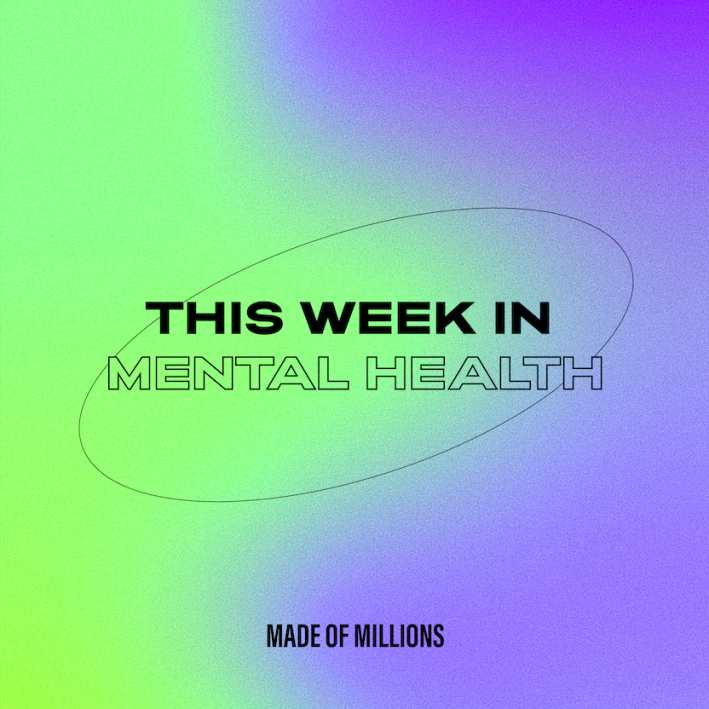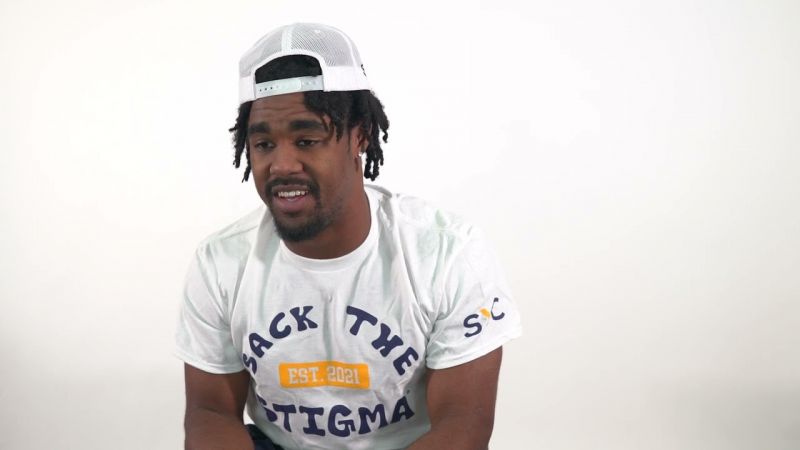This Week In Mental Health
The latest on legislation, research, and advocacy for the week of February 28th.
Written by Esther Fernandez

01 President Biden talks mental health in State of the Union address.
02 Research looks at worldwide increases in anxiety and depression, how collective action helps ease eco-anxiety, and suicidality rates for students with ADHD.
03 University of Michigan football players and Robert Covington start conversations about mental health.
TW // mentions of suicidality
Conversations about mental health have grown exponentially over the last decade, with more and more people committing to personal and collective wellness. While we have a ways to go before mental health awareness, education and treatment are accessible to all, each day brings new and positive strides within the field.
Our This Week In Mental Health series covers the latest happenings in research, treatment, human interest stories, and more. Stay updated on new developments so you’re better equipped to navigate the world, and most importantly, your own recovery.
Here’s what’s happening the week of February 28th, 2022.
Legislation
Here's What Experts Say Biden Gets Right In His New Mental Health Plan
President Biden revealed a mental health plan for the nation during his first State of the Union address. Some parts of the plan include focusing on youth mental health, which has been negatively affected by factors such as the pandemic and social media; increasing mental health workers through means such as loan forgiveness; permanent funding for behavioral health centers; increasing funding and staff for crisis centers; and increased mental health insurance coverage.

Biden Signals Protecting Your Children's Mental Health By Cracking Down On Social Media
Research
Covid-19 Pandemic Triggers 25% Increase In Prevalence Of Anxiety And Depression Worldwide
Anxiety and depression increased 25 percent in 2020. In particular, youth, women, and those with pre-existing conditions were more at risk for mental health issues. Some reasons for this may include fear of contracting COVID, loneliness, and struggling with finances. Additionally, many healthcare workers struggled with suicidality. This insight comes from a scientific brief from The World Health Organization.
Collective Action Helps Young Adults Deal With Climate Change Anxiety
Youth with eco-anxiety may help their mental health struggles by participating in collective action. Researchers from Yale University surveyed 300 university students across the US, and found that for students with climate change anxiety, depression was less significantly associated for those who did activities such as peer education and advocacy. The study also pointed out that individual actions did not improve mental health as much as collective actions, potentially due to individual actions not seeming impactful enough.
Suicide Risk High Among College Students with ADHD
College freshmen with ADHD have higher rates of suicidality and self harm than those without ADHD. Researchers surveyed over 1,800 students in Ireland, and found that 44.8 percent of freshmen with ADHD had suicidal ideation, compared to 21.7 percent of freshmen without ADHD. Those with ADHD were also more than two times more likely to have attempted suicide and self harmed. Around 27 percent of those surveyed had ADHD.
Advocacy
UM Players Open Up About Mental Health
University of Michigan football players have launched a mental health campaign called Sack the Stigma. The campaign is, “a collaborative awareness campaign by Soho Youth Club and Valiant aimed to destigmatize mental health, specifically amongst students and student-athletes. With support from the University of Michigan football team, we look to further the conversation around mental health both inside and outside the locker room.” A few team members commented on the importance of mental health advocacy, explaining that they want everyone to feel supported, and to eliminate the stereotype of athletes being incapable of having these conversations.

SACK THE STIGMA
Robert Covington Opens Up About Mental Health Struggles
Basketball player Robert Covington spoke about his mental health during a post-game press conference. He details a tough time in his life, where he wasn’t doing well mentally and considered leaving his basketball career. When a coach pushed him to see a therapist, he was able to improve. By putting his mental health first, he learned how to better support himself and those around him.
Support our work
We’re on a mission to change how the world perceives mental health.



















